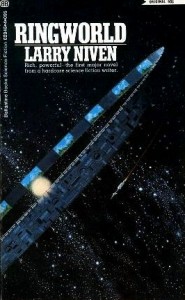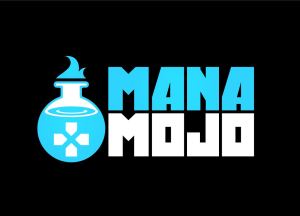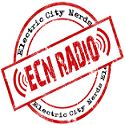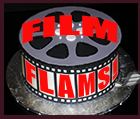 Welcome to the eleventh instalment of Dust Jacket. First, an apology:
Welcome to the eleventh instalment of Dust Jacket. First, an apology:
Due to forces beyond my control, our scheduled review of The Windup Girl has been set back. We’ll return to that novel when we can.
And now a special thanks:
Thanks to David and Miztres for their review of American Gods. Luke and I were exhausted after completing five reviews in five weeks, and we needed a much deserved (IMO at least) break. David and Miztres stepped up and delivered a fantastic review.
But now we’re back from Hugo month with our regularly scheduled look at some of the classics of science fiction literature. This week, we’re off to explore the wonders of Ringworld, Larry Niven’s Hugo, Nebula and Locus Award-winning 1970 novel.
As always, I’m joined by my co-conspirator Luke, the world’s harshest critic. Special thanks are due to Luke this week, since he was the one that brought Ringworld to my attention and provided me with my copy of the novel.
WHAT YOU NEED TO KNOW
Louis Wu is celebrating his 200th birthday, but finds himself bored. He believes he’s experienced all life has to offer. He is contemplating a solo trip into deep space when he is recruited by Nessus, a Pierson’s Puppeteer, for an exploratory voyage beyond known space.
Wu is joined by Speaker-To-Animals, a cat-like Kzin, and Teela Brown, a young human woman and Louis’ love interest. Guided by Nessus, they travel to the homeworld of the Puppeteers, where they learn of the existence of Ringworld, an artificial ring planet about one million miles wide, encircling a Sol-type star. The Ringworld has a habitable flat inner surface equivalent in area to approximately three million Earth-sized planets. Night is provided by an inner ring of shadow squares which are connected to each other by thin ultra-strong shadow square wire.
Together, the intrepid group begins their exploration of Ringworld, encountering primitive humans, a native barbarian hero called Seeker, ruined cities, automated security systems and Halrloprillalar, a crew member on a starship once used for trade between the Ringworld and other inhabited worlds.
They also find themselves stranded on the planet, and Louis is forced to devise an escape plan to get them home again.
WHAT WE THOUGHT
RICHO: The first thing that strikes the reader in Ringworld is a fascinating array of characters that Niven has created: Nessus, the cowardly, mad Puppeteer given the task of recruiting the crew for the exploration mission; Speaker-To-Animals, the disgraced warrior marginalised in his own society; Teela Brown, the naive, innocent but seemingly unnaturally lucky free spirit. They’re all fascinating and distinct characters, each with their own voice and motivations. More importantly, they play off one another perfectly, giving us multiple perspectives on the Ringworld itself.
And then, of course, there’s Louis Wu.
LUKE: Some characters fill a thousand pages, yet never illicit so much as a ‘meh’ from the reader. Some characters struggle to reveal more interesting qualities through mundane action and formulaic plots. Some characters need fifty pages before they become sympathetic, empathetic, or fascinating to a reader. None of these types are the main character of Ringworld. None of these are Louis Wu. On the face of it, he’s a stock standard pulp character, the universe weary adventurer lured into one last quest for glory. But Niven sets up within the first few pages that Louis seeks not just adventure and excitement, but a respite from the mundane. “You are a restless man, Louis Wu,” Nessus says to him on their first meeting. Indeed, Louis has left his own birthday party in a race against the midnight deadline to see and do something…interesting. Significant. Out of the ordinary. Yet, as he traverses the world, cities and countries blend into each other. All he hears is a common language. He is a man looking for the difference on a planet where the mundane is celebrated. A hero in another novel would crusade to bring colour to their grey world. Louis is just not interested. “On each of the worlds of human space, you have lived enough years to be known as a native.” He doesn’t want to change the universe, he wants to explore it.
Louis is intelligent to the point where he can hold conversations with Nessus on the possible construction of an artificial world. He’s the one who comes up with the plan to present Speaker-to-Animals as a god. He deduces much of how the Ringworld works as they’re exploring it. He also deduces the real reason behind Teela’s inclusion on the crew (it’s not just her luck). But he’s not intelligent that he becomes invincible. He doesn’t foresee the trap that he and Speaker-to-Animals get caught in. He can’t save Teela from being dragged off by the hurricane. He’s intelligent and clever, yet still fallible.
And that’s Louis Wu. A character who grabs you from the get go.
RICHO: Aside from amazing and complex characterisation, Ringworld also provides some incredible high concept science fiction ideas; the Puppeteers, a cowardly race that manipulated others to ensure their own safety and who fear hyperspace travel so much that their journey to escape the destruction of the Galactic Core has them travelling at sub-light speed for thousands of years; The Fleet of Worlds, the Puppeteer homeworld composing of a ring of five mobile planets surrounding a red giant star; the Ringworld itself. So many ideas compacted into a single story, each worthy of its own novel.
LUKE: The Ringworld is not just another Big Dumb Object. It’s not Rama, nor the Death Star. It’s Wonderland: familiar, alien, yet never anything but awesome (in the literal sense of the word). We might take comfort in the setting sun and the mountain range, but the size of the world and nature of the culture that rules it would truly humble us. And it’s not fully explored. The characters only end up travelling a few thousand kilometres along the rim wall. A small space. And yet the characters encounter a culture that they must convince are devine, almost get chargrilled by the sea of sunflowers, and are captured and observed by Prill and her people in the floating city. It begs the question: If we only see a small section of the world, then what remains unexplored?
RICHO: Niven perfectly balances out the hard science concepts in the novel with a sense of awe and wonder about the endless possibilities space exploration has to offer. In this respect, it is reminiscent of Arthur C. Clarke’s Rendevouz With Rama. Unlike Clarke, who takes a colder, more clinical approach, Niven gives us rich, complex characters to experience these wonders through. Through Louis Wu, we see that even the most world weary among us can still find that which captures our imagination.
LUKE: Which gives this the edge over Rama. Sure, Ringworld doesn’t reach the philosophical or meta-physical heights of Clarke. But the science is just as hard; the world is more imaginative and more intriguing; and the plot is driven by its characters rather than the blank slates that explore Rama. Also there is conflict between the characters. Louis, Teela and Speaker-to-Animals all have problems with each other at some point in the story, and no-one likes Nessus.
RICHO: Despite its strengths, Ringworld is not quite the perfect novel. There is one section, just before the explorers land on the Ringworld, where there is a lull in the book. Their landing is very long and drawn out, and while this plays to the hard science elements of the novel, it does derail the momentum of the story. It certainly helps build your anticipation of the crew’s eventual landing on the artificial planet, but it drags on too long, so much so that I found my anticipation waning. Fortunately, this lull does come to an end, and once the exploration of the Ringworld begins in ernest, the excitement and fascination returns.
LUKE: One of the traits that Niven tells us early on is that Louis Wu doesn’t charge blindly in, Han Solo-style. “You take risks,” Nessus says, “but you calculate them first.” For me, that’s what that lull moment is doing. Instead of just flying through the shadow squares, oblivious to any danger landing might have, Nessus and Louis study the Ringworld first. It does come across as expositional, true, but by having Louis Wu deduce some of the science and engineering behind the Ringworld on first contact, we see just how intelligent he is.
RICHO: Ringworld completely captured my imagination, leaving me eager to learn more about this wonderful universe Niven has created. It is well and truly worthy of its multiple awards and high status amongst SF aficionados. 4.5 Lukes.
LUKE: 5 Lukes. A great book which produced a great sequel. Louis Wu returns. The Ringworld is unstable!
WHAT DO YOU THINK?
Lavish praise indeed from both Luke and myself, but are our opinions justified? Send us your comments, criticisms and, most importantly, your votes! Help us compile the definitive list of Greatest Sci-Fi Masterpieces.
THE RANKINGS
Ringworld topples both Foundation and The Forever War at the top of our list! We have a new frontrunner for greatest SF novel of all time.
TITLE AUTHOR RANKING
1 Ringworld Larry Niven 4.75
2 Foundation series Isaac Asimov 4.5
2 The Forever War Joe Haldeman 4.5
3 The City and the Stars Arthur C. Clarke 4
4 Non-Stop Brian Aldiss 3.5
5 Player of Games Ian M. Banks 3.25
6 The Hundred Thousand Kingdoms N.K. Jemisin 3
7 Cryoburn Lois McMaster Bujold 2.25
8 Blackout Connie Willis 2
9 The Dervish House Ian McDonald 1.5
10 Feed Mira Grant 0.5
BEHOLD…THE FUTURE
Join us in two weeks as we explore the powers of the mind in Alfred Bester’s seminal science fiction classic and inaugural Hugo Award winner, The Demolished Man.








